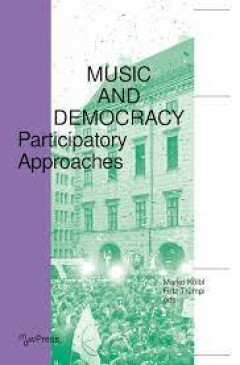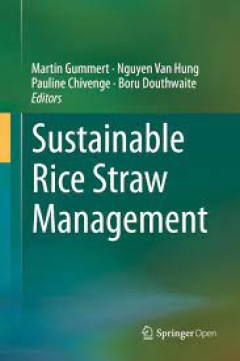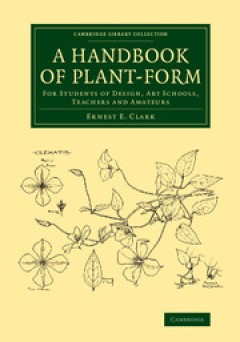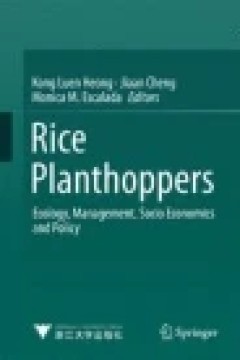Filter by

Music and Democracy Participatory Approaches
Music and Democracy explores music as a resource for societal transformation processes. This book provides recent insights into how individuals and groups used and still use music to achieve social, cultural, and political participation and bring about social change. The contributors present outstanding perspectives on the topic: From the promise and myth of democratization through music techno…
- Edition
- -
- ISBN/ISSN
- 9783839456576
- Collation
- -
- Series Title
- -
- Call Number
- -

Intertwined Histories
How do we understand the boundaries of individual creatures? What are the systems of interdependency that bind all living creatures together? Plants were among the the first to colonize the planet. They created the soil and the atmosphere that made life possible for animals. They are some of the largest and oldest life forms on Earth. In spite of their primacy, Western cultures have traditional…
- Edition
- -
- ISBN/ISSN
- 9781773850917
- Collation
- -
- Series Title
- -
- Call Number
- -

Shrines and Pilgrimage in the Modern World New Itineraries into the Sacred
The modern pilgrimage - to sites ranging from Elvis's Graceland to the Vietnam veterans' annual Ride to the Wall to Jim Morrison's Paris grave - is intertwined with our existential uncertainties in the face of a rapidly changing world. In a climate that reproduces the religious quest in seemingly secular places, it is no longer clear exactly what the term pilgrimage infers - and this unique gli…
- Edition
- -
- ISBN/ISSN
- 9789089640116
- Collation
- -
- Series Title
- -
- Call Number
- -

Sustainable Rice Straw Management
This open access book on straw management aims to provide a wide array of options for rice straw management that are potentially more sustainable, environmental, and profitable compared to current practice. The book is authored by expert researchers, engineers and innovators working on a range of straw management options with case studies from Vietnam, the Philippines and Cambodia. The book is …
- Edition
- -
- ISBN/ISSN
- 2020
- Collation
- -
- Series Title
- -
- Call Number
- -

Computer and Computing Technologies in Agriculture VIII
This book constitutes the refereed post-conference proceedings of the 8th IFIP WG 5.14 International Conference on Computer and Computing Technologies in Agriculture, CCTA 2014, held in Beijing, China, in September 2014. The 81 revised papers included in this volume were carefully selected from 216 submissions. They cover a wide range of interesting theories and applications of information tech…
- Edition
- -
- ISBN/ISSN
- 9783319196206
- Collation
- xvi, 756 pages
- Series Title
- -
- Call Number
- 630

A Handbook of Plant-Form For Students of Design, Art Schools, Teachers and A…
Written and richly illustrated by the Derby-born artist Ernest Ellis Clark (1869–1932), this guide was originally published in 1904 to demonstrate the decorative possibilities of certain plants, mainly English wild flowers, to art students sitting examinations in plant drawing and design. Clark emphasises the importance of retaining a certain amount of botanical accuracy and provides examples…
- Edition
- -
- ISBN/ISSN
- 9781107262225
- Collation
- -
- Series Title
- Cambridge Library Collection - Botany and Horticulture
- Call Number
- -

Heavy Metal Contamination of Soils Monitoring and Remediation
Following a description of the various sources and factors influencing the contents of heavy metal pollution in post-catastrophic and agricultural soils, subsequent chapters examine soil enzymes and eggs as bio-monitors, lead adsorption, the effects of arsenic on microbial diversity, and the effects of Mediterranean grasslands on abandoned mines. A third section focuses on the adaptation strate…
- Edition
- -
- ISBN/ISSN
- 978-3-319-14525-9
- Collation
- XIX, 497
- Series Title
- -
- Call Number
- 630 HEA

Conservation Agriculture : an Approach to Combat Climate Change in Indian Him…
This book showcases a compilation of case studies presented by scientists, teachers and academics and covers contemporary technologies for combating climate change, including sustainable agricultural management practices and conservation agriculture. It highlights the situations that future generations in the Indian Himalayas will face, and addresses the major challenges for tomorrow's generati…
- Edition
- -
- ISBN/ISSN
- 9789811025587
- Collation
- XV, 559 pages 83 illustrations, 68 illustrations in color.
- Series Title
- -
- Call Number
- 630

Rice Planthoppers
The book discusses planthopper pests of rice. These insects are one of the most destructive pests, threatening food security around the world. The historical development of the rice planthopper problem shows that they are secondary pests and single-discipline control tactics or strategies were not able to manage them, and instead caused frequent resurgences. This book not only presents new appr…
- Edition
- -
- ISBN/ISSN
- 978-94-017-9535-7
- Collation
- -
- Series Title
- -
- Call Number
- -

Language, Thought, and Reality (1956 edition)
Overview: A unique perspective on the confluence of the three basic conceptual frameworks in human experience. Contains several studies, with data, of remarkable world views of disparate cultures based on their specific cultures language. The premise is that how people experience the world, then think about it, then create a language around it, alters their perception of the world in very funda…
- Edition
- -
- ISBN/ISSN
- -
- Collation
- 278 Pages
- Series Title
- -
- Call Number
- 404 WHO l
 Computer Science, Information & General Works
Computer Science, Information & General Works  Philosophy & Psychology
Philosophy & Psychology  Religion
Religion  Social Sciences
Social Sciences  Language
Language  Pure Science
Pure Science  Applied Sciences
Applied Sciences  Art & Recreation
Art & Recreation  Literature
Literature  History & Geography
History & Geography